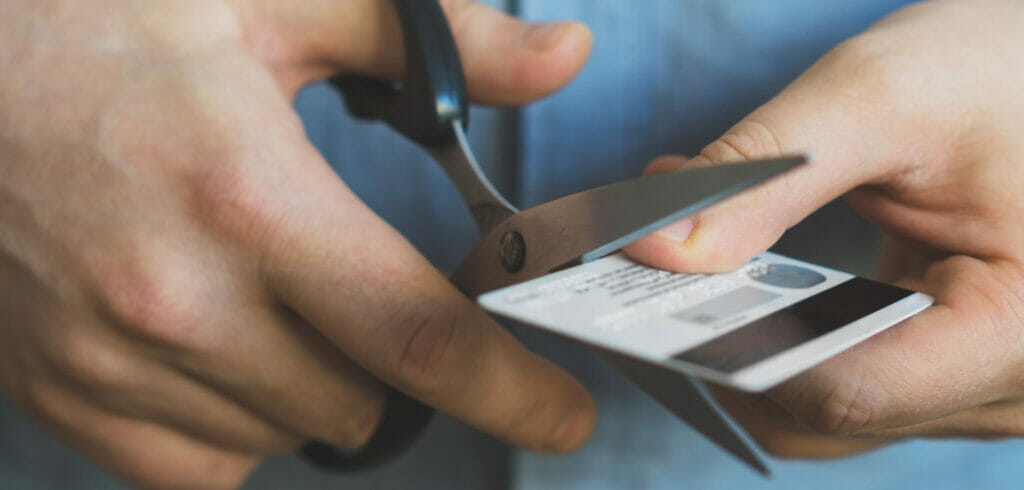Dealing with Credit Card Debt
Debt Solutions
Dec 06, 2021 ● 5 min

Credit card debt affects millions of people
In the UK alone, the average amount of credit card debt is over £2,000 per person, a figure which has been on the increase since the start of 2021.*
If you’re struggling with your credit card debt, getting on top of it may feel overwhelming – but you’re not alone. We’ve put some information together to give some insight on how being in debt with credit card companies might affect you, and how you can start to tackle it.
How to get out of credit card debt
How you choose to begin getting rid of your debts will vary to others and all depends on your situation and affordability. Reaching out to your lenders directly may help if you are facing personal or financial hardships. You may be able to reach an agreement for minimum payments to be made, which credit card providers are usually happy to do as this still means they are receiving some money back. However, whilst these amounts may be more affordable for you each time, it might mean that you aren’t actually getting on top of your debts as effectively. If you have a loan with a high interest rate and only pay back the minimum amount due, then often this can mean that you are barely chipping away the overall total.
There are many debt solutions that your credit cards can be included in, which would allow you to reach an agreement with your lenders and mean you are legally protected. If you are in debt in other areas too and not just credit cards, it’s worth finding out whether you can consolidate your debts in one and deal with them together.
What happens if I don’t pay my credit card debts?
If you do not keep up regular repayments to your debts, you could face further trouble down the line. Your lender may take action such as adding charges to your total amount due, which would mean your debt will increase even further.
It’s unlikely that you will be sent to prison for non-repayments of credit card loans, but it’s possible that your case will be handed over to debt collectors or bailiffs after a certain amount of time. Depending on the severity of the situation, your creditors may also apply for you to be made Bankrupt, a measure which could have a big impact on you. You may lose your home and other possessions in order for them to be sold and your creditors repaid.
How is your credit score affected?
Borrowing money from lenders will always leave a footprint on your credit file. Your credit score is calculated by agencies who receive information on how much you have borrowed and how well you are paying this back each month. Information about your credit card loans, as well as any other borrowing you may have done, will be visible on your credit file.
Future lenders will have access to this information and will use it to decide whether or not you are likely to pay back money you ask to borrow from them too, so being in debt for credit cards makes it increasingly difficult for you to borrow any further money.
Your credit score is calculated from this information and a poor score makes important purchases like mortgages and other financing very difficult, with the negative impact lasting several years.
Where can I get advice for my credit card debts?
If you are worried about how to manage your credit card debts, along with any other debts you may be struggling with, then we’d advise getting in touch with professionals to discuss your situation. At this stage, any advice or support you receive should be completely free.
Here at Money Advice, we’ll be able to take time to go through your situation with you and give you realistic options for you to consider in order to to start the journey to getting debt free. If you are concerned about your situation and would like some free advice, reach out to us on 0333 242 0013.
* Figures from the UK Debt Service: October 2021 statistics